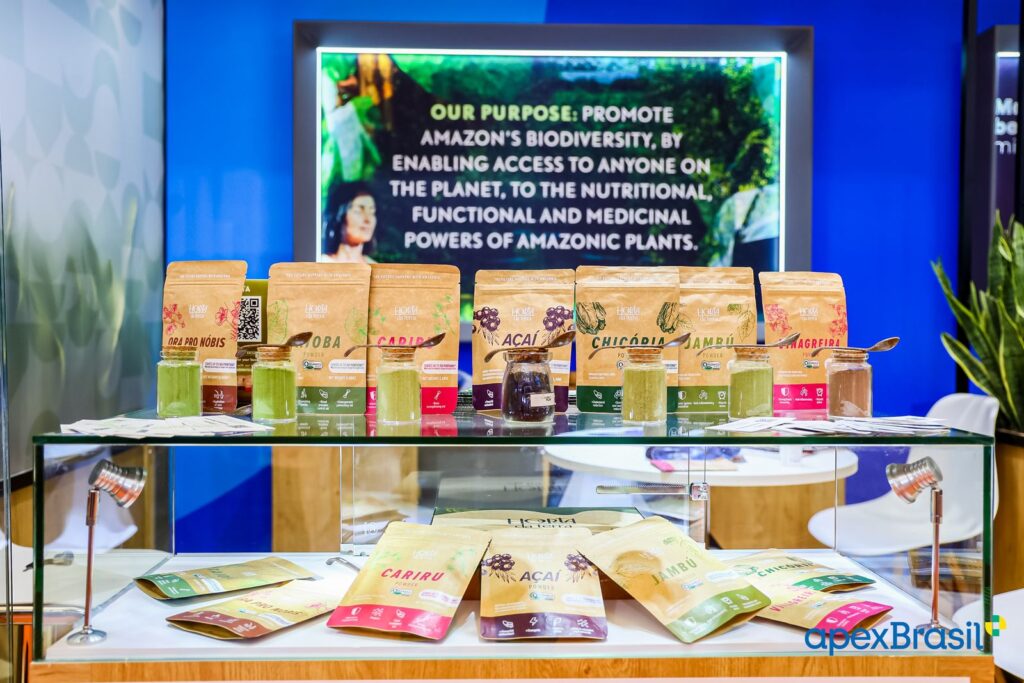Expansion of Agricultural Trade Between China and Brazil Marks 50 Years of Diplomatic Relations
Brazil Strengthens Agricultural Ties with China
The Brazilian Confederation of Agriculture and Livestock (CNA) led a group of rural entrepreneurs to Shanghai, China, from May 27 to 31, celebrating the 50th anniversary of diplomatic relations between the two nations. This initiative included seminars, business rounds, technical visits to retail networks and restaurants, and participation in Sial Shanghai 2024, the premier Chinese trade fair for agrifood products.
Diversifying Exports for the Chinese Market
This trade mission highlighted the deepening agricultural trade relationship between China and Brazil, showcasing significant strides in enhancing economic collaboration beyond traditional commodities like soybeans, corn, cotton, and coffee. During the 50th-anniversary trade seminar, organized by the CNA and other institutions, over ten Brazilian agricultural companies, including MASTERINT, Lamberhoney, Apis Nativa, Jalles, and Petruz Açaí, showcased a diverse range of products such as honey, organic sugar, açaí berries, and nuts.
Pedro Rodrigues, a trade advisor at the CNA, emphasized the development potential of Brazil’s cost-effective nuts, açaí berries, organic sugar, and honey in China. With Chinese consumers increasingly prioritizing healthy diets, these Brazilian products are well-positioned to meet the growing demand.
Agro.BR Project and Financial Support
The delegation, part of the Agro.BR project—a partnership between CNA and Apex-Brasil—aimed to expand and diversify the agro export agenda. Chinese banks played a pivotal role by offering comprehensive financial services, addressing key concerns like timely fund receipt, effective exchange rate risk management, and trade financing.
RMB Settlement and Growing Trade Volume
The mission also included a seminar discussing bilateral trade, e-commerce opportunities, and the challenges and opportunities of Brazil-China food trade. An executive from a Brazilian agricultural product company highlighted the potential benefits of settling trade in RMB, which could attract more Chinese buyers and expand the sales scale of Brazilian products in China. The CNA is actively promoting the use of RMB for trade settlements, reducing exchange rate risks and enhancing trade efficiency.
Sial China 2024
Following this, the group participated in Sial Shanghai 2024, engaged in institutional and business meetings, and visited several key retail and trade platforms. CNA’s presence at SIAL marked an important milestone for Brazilian agribusiness.
Our CEO & founder, Bruno Kato, had the amazing opportunity to be part of this renowned event with his own booth, allowing us to connect with industry leaders, explore innovative trends, and showcase our commitment to sustainability. For Horta da Terra, this thriving trade relationship presents a perfect opportunity to introduce our unique superfoods to the Asian market. With a focus on Amazonian biodiversity and sustainability, our freeze-dried and powdered super ingredients align perfectly with the growing Chinese demand for healthy, high-quality products. The continued collaboration between China and Brazil in agricultural trade ensures a promising future for introducing innovative, medicinal, functional, and sustainable Brazilian superfoods to discerning Asian consumers.
A special thanks to Apex Brasil for the outstanding support and partnership and for all our team members who made this possible.



Pictures at Sial Shangai 2024 with our CEO & Founder, Bruno Kato
CNA’s Commitment and Future Prospects
The Brazil-China Business Council (CEBC) reported a bilateral trade volume of $51.5 billion in the first four months of 2024, with agricultural trade playing a significant role. The CNA is committed to overcoming challenges to support the entry of more Brazilian agricultural products into the Chinese market.
China remains the primary market for Brazilian agro exports, accounting for 36.2% or US$166.5 billion. As China’s purchasing power grows, opportunities for diversifying the export agenda and accessing non-traditional products in international trade increase.